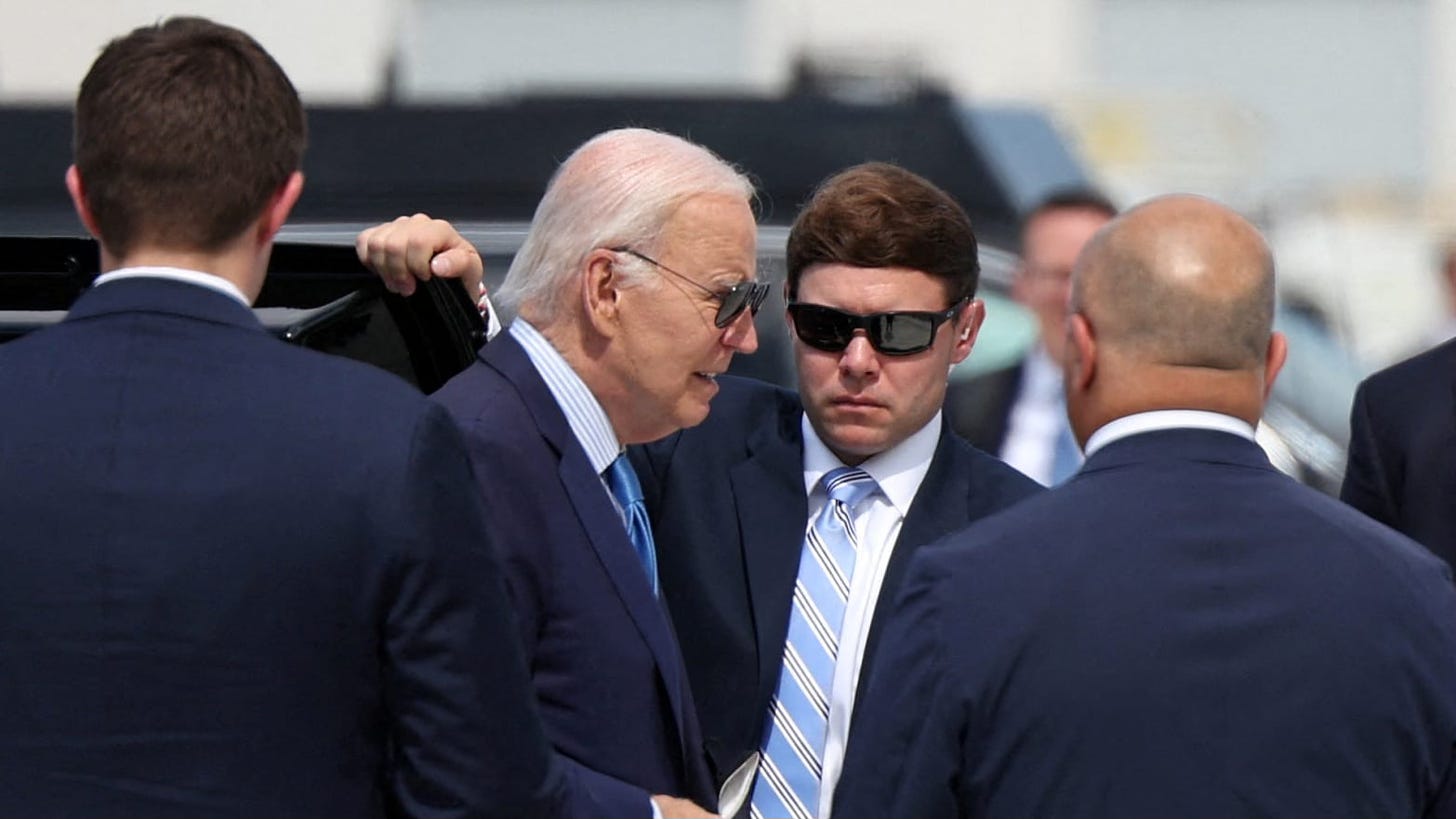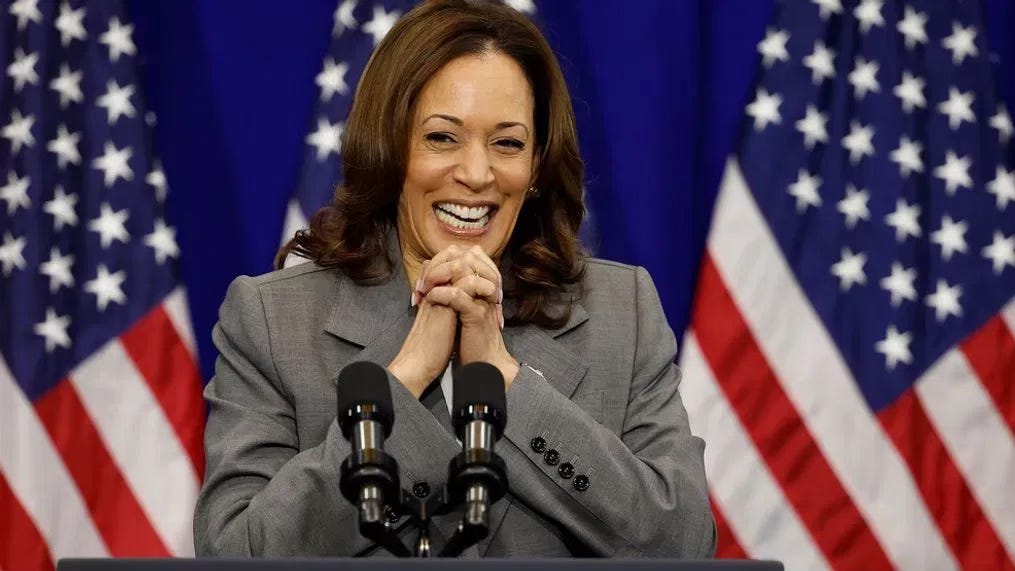Mahoney on Biden Harris Hysteria
Biden's decision to quit the race and its implications for Democrats, Assessing Kamala Harris as a presidential candidate.
Prof. Mahoney was interviewed by Global People (#beijing) for this piece on Biden's decision to quit the race and its implications for Democrats in November.
Article in Chinese (link below), full remarks in English.
First, on the precedent of quitting the race:
In the post-World War ll era the U.S. has seen different scenarios. Forexample, Lyndon Johnson decided to not seek the nomination for anadditional term due to his lack of popularity. Democrats still lost, withNixon winning. Gary Hart was the Democratic front-runner in 1988, butguit the race after revelations of extramarital affairs, making it easier forthe elder Bush to win. Historically these types of strategic retreatsrarely succeed.
However, since the Clinton and Trump years, politicians havedemonstrated a much greater capacity to withstand scandals anddamage, in large measure because voters have become more polarizedand, however contradictory it may seem, less conservative aboutcertain types of scandals.
Today this polarization has reached extreme levels, exacerbated by thephenomenon of post-truth platforms whipsawing public opinionsbetween competing hyper-realities. Consequently, Biden's retreat mightnot be quixotic..
How to understand Biden's legacy?
A Marxist analysis of Biden's presidency must note the plethora ofcontinuities between his Administration and those of his predecessor.While we can point to a few significant divergences in policy, in factmost has stayed the same, insomuch as presidents must represent theircountry's economic and strategic interests, which don't really changewhen someone new is elected.
Consequently, we can say that the primary difference between Biden and Trump was style and circumstances.
Read more here.
Prof. Mahoney was interviewed by Josh Xiao with #bloomberg for this piece on #china and #kamala harris as a presidential candidate following Biden's decision to withdraw.
On the question, should we expect a shift in US policy if Harris is elected?
"There is a well-established strategic continuity that is driving the US position right now," said Josef Gregory Mahoney, a professor of international relations at Shanghai's East China Normal University.'And at the level of whether it's Biden or Trump or Harris, it's really just a matter of style.
Fundamentally, the next president has to represent the economic and strategic interests of the United States, he added.
Also noted in the interview that while strategic continuity will be the rule, this doesn't mean that a new Administration won't take the opportunity to make tactical adjustments to advance evolving objectives.
Furthermore, a new leader will sometimes want to demonstrate a show of force to discourage second-guessing. Consequently, we should expect some rougher waters and apparent changes but the over arching goals will be the same: contain and isolate China, slow or stall development, especially in tech-related fields, and try to encourage new problems, like undermining economic reforms via increased pressure, inducing a middle income trap, etc.
See more here.




